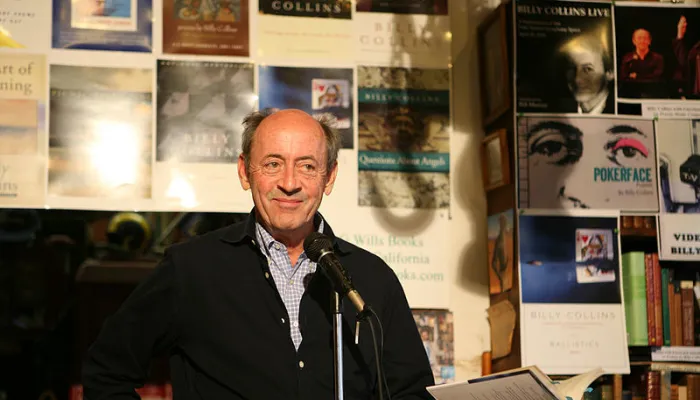Sabyasachi Nag
Biography
Sabyasachi (Sachi) Nag is the author of a story cycle "Hands Like Trees" (Ronsdale Press, 2023), and three poetry collections, including Uncharted (Mansfield Press, 2021) and Could You Please, Please Stop Singing (Mosaic Press, 2015). His work has appeared in Anomaly, Black Fox Literary, Canadian Literature, Grain, The Antigonish Review, The Dalhousie Review, and The Windsor Review, among other places. An alumnus of the Banff Centre Literary Arts Program, Sachi holds creative writing certificates from the Writer’s Studio at Simon Fraser University and Humber College. He is currently an MFA Candidate at the University of British Columbia. He is grateful to have the opportunity to live with his wife and son in Mississauga which is part of the Treaty Lands and Territory of the Mississaugas of the Credit, the Anishinaabeg, the Chippewa, the Haudenosaunee and the Wendat peoples and is now home to many diverse First Nations, Inuit and Métis peoples. You can find him at sachiwrites.com.
Micro-interview
I read a lot of poetry in high school. The poets I was required to read notably included Lewis Carrol, Keats, Shelley, Wordsworth, Coleridge, Tennyson, Milton, Browning, Tagore, Frost, Yeats and Cummings. I was also reading Ginsburg and Kerouac, Neruda and Vallejo. One poem that I really loved as a teenager was Lewis Carrol's "Jabberwocky". That stayed a favourite for a while, before it changed to Neruda's "Tonight I write the Saddest Lines".
I started writing poetry in high school. My first memory of a complete poem was about a cart with no wheels. It was a funny poem. Also, meaningless, perhaps. The cart was pulled by a person with mighty arms, arms so mighty they almost touched his feet. Someone who felt strong when starting to pull the cart with no wheels before feeling all his strength had drained and when the cart reached very close to the top of the hill the man was no longer pulling the cart, the cart was pulling the man even though the cart was behind him. I think at that stage I was just making sounds rather than making sense. Lots of folks I was writing with were writing political poetry influenced by the beat poets and socialism. I was interested in politics and interested in meaning, yet, I was hoping to write something that made sense only to me. I didn't think of myself as a poet then.
I feel poetry is a place and being a poet is like visiting that place where poetry is. When you visit the place, you are poet. When you have left the place behind, you are no longer a poet. Which is why I think in order to be a poet for any lenght of time, an hour, a day or a year, one ought to keep visiting that place.
I think all poets do different things, or at least, they try doing different things. When I started writing poetry, I was worrying myself sick about making half decent sounds and then about meaning and making sense and then about images and then about the line and then the absence of meaning and then about negative space and the field of the sound and the leap of an image and so on. There are times I do find myself writing about something, as though it were a job I was assigned. My friend’s dog Cooper, was diagnosed with a lump that could have been cancer, someone said, why don't you write about him. I started writing about Cooper and soon found that I was writing about my friend. I tried again and found myself writing about other people walking their dogs. I realized, I didn’t know a lot about being Cooper. So, while I was trying to write about Cooper, truth I knew or experienced, truth connected with Cooper, was looking to find it’s way out through other pathways. I think poets look for interesting ways to tell the truth they see, and because truth is not one thing, and because a version of truth can be told in many ways, poets keep looking and telling. It's like walking on a beach when you are a child, you find a conch and you run to tell the world you found something worthwhile, maybe, perhaps it has an ocean inside, perhaps a worm, and then you walk again and find something else.
The first draft of “Catastrophe That Nearly Brought Down a Plane” was literally written in a plane on a sickness bag. It was inspired by the character(s) inhabiting the poem; chiefly, a character who refused to fit in the confinement of the middle seat. I felt possessed by the character. I felt he was inviting me to a conversation I had no chance to fully comprehend, yet, as it happens often with music in languages we don’t know, the rhythm of the sounds made by his words was universally affirmative. It was as if he and I were the same person.
I have had a very hard time memorizing anything. If I had to memorize one poem from the anthology, I think I would start with Tagore's "Gitanjali" because I remember most of it and then, perhaps, move to Tennyson's "Ulysses" because I had done it once in High School and I have this habit of moving between ideas and places and so I would move again to Michael Ondaatje's "Sweet Like a Cow."


